Natural Home Remedies for Loose Motion
By Dr Siddharth Gupta +2 more

Get,

to manage your symptom
Get your,


4 Cr+ families
benefitted

OTP sent to 9988776655



You’ve successfully subscribed to receive
doctor-approved tips on
Whatsapp

Get ready to feel your best.

Hi There,
Download the PharmEasy App now!!


Register to Avail the Offer
Send OTPBy continuing, you agree with our Privacy Policy and Terms and Conditions

Hi There,
Sign up on PharmEasy now!!
Trusted by 4 crore+ families

OTP sent to 9988776655



You have unlocked 25% off on medicines




Code: NU25
By Dr Siddharth Gupta +2 more
Table of Contents
Loose motions, often known as diarrhoea, are defined as loose, watery faeces (stools). If the loose stools occur three or more times in a single day, the individual is considered to have loose motions1. Loose motion can occur for various reasons, and they usually go away on their own after one to three days. However, you may need to go to the bathroom quickly when you have loose motions, which may occur more frequently than usual. Individuals may also feel bloated, have lower abdominal discomfort, and occasionally experience nausea.
Although most cases are self-limiting, complications such as dehydration, electrolyte imbalance, and even kidney failure may occur if not managed properly. To prevent this, it is essential to replenish fluids and electrolytes.

Loose motions can be classified as acute, persistent and chronic. The most common are acute loose motions, which last only one to two days with loose, watery diarrhoea2. This type does not require treatment and resolves itself typically after a few days. Persistent loose motions are diarrhoea that typically lasts for two to four weeks. Chronic loose motions last for longer periods of time, such as more than four weeks.
The most common causes of loose motions include:
In case of mild loose motions, a person may experience symptoms like:
In case of severe loose motions, a person may experience symptoms like:
To prevent dehydration, loose motions are treated by replenishing lost fluids and electrolytes. The individual may require medications to control the loose motions or treatment based on the disease condition. Adults with frequent bowel movements should drink water, fruit juices, sports drinks, caffeine-free sodas, and salty broths. Oral rehydration solutions should be provided to children with loose motions to restore lost fluids and electrolytes1. A few of the home remedies that will help to stop loose motions safely and naturally are:
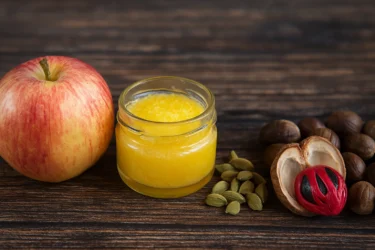
Cooking an apple with ghee, a pinch of cardamom and nutmeg and consuming this mix is helpful for the management of loose motions.
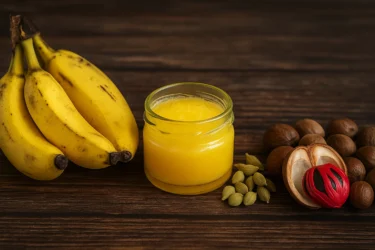
Mixing of one or two bananas with ghee, a pinch of cardamom and nutmeg is helpful for the management of loose motions by binding stools as it is rich in potassium content.
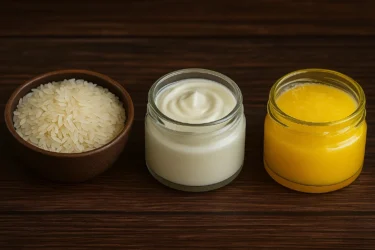
Eating cooked rice with yoghurt with ghee is also helpful for dealing with loose motions.
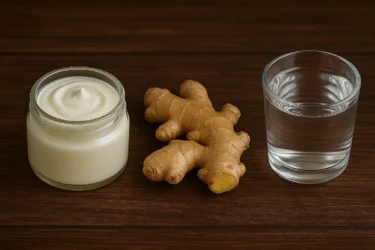
Mixing equal parts of water and yoghurt with freshly grated ginger is helpful for the management of loose motions.
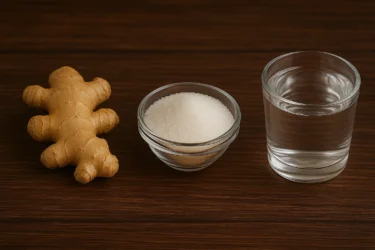
Consumption of ginger powder and raw natural sugar with warm water is helpful for loose motions.
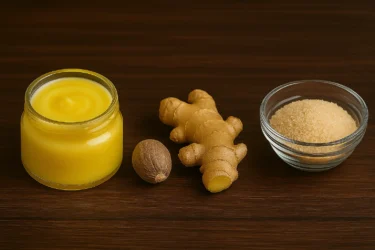
Consumption of a mixture of ghee, nutmeg, ginger powder and natural sugar, two to three times a day for two to three days, is helpful for the management of loose motions.
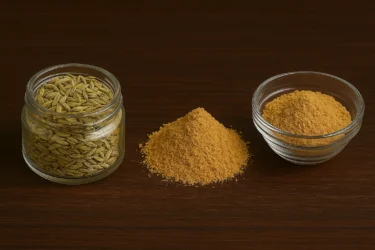
Chewing a mixture of fennel powder and ginger powder two to three times a day is a helpful remedy for loose motions.
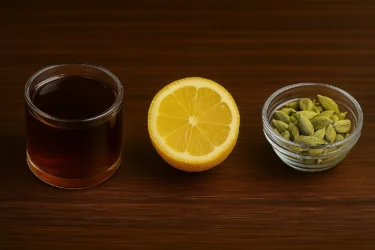
Drinking a cup of hot black tea with a pinch of lemon juice and a pinch of cardamom or nutmeg will help in the management of loose motions.
Self-administering antibiotics during episodes of loose motions is a common but incorrect practice. In cases of viral infections, antibiotics may not be necessary. It is advisable to consult a doctor for appropriate treatment and adhere to the recommended dietary precautions.
Dr. Arpit Verma, MBBS, MD (Pharmacology)
Also Read: Effective Home Remedies For Anal Fissure
The vast majority of mild loose motion situations do not necessitate medical intervention. These situations are self-limiting and resolve on their own without the need for medical intervention. The management of mild loose motions involve supportive therapy, which includes staying hydrated and eating bland diets. If you experience chronic loose motions, you should seek medical attention. For treatment of loose motions, consult a gastroenterologist (a doctor who treats digestive disorders). More severe types of loose motions may necessitate medical care.
Also Read: Home Remedies For Nausea By Dr. Rajeev Singh
Loose motions refer to frequent, watery stools, often caused by infection, food intolerance, or medication. While most cases resolve on their own, simple home remedies like ginger water, banana mixes, and black tea with nutmeg can help. If symptoms persist or worsen, seek professional care.
Also Read: Best Home Remedies For Gout
Yes, home remedies are available for loose motions. Simple home remedies that may help with loose motions include consuming yoghurt, ginger and water, rice, yoghurt and ghee, etc.
Viruses, bacteria and parasites from contaminated food or water, food intolerances, medicines, diseases of the gastrointestinal tract, malabsorption of food, radiation therapy and eating foods that upset the digestive system are the causative factors of loose motions1.
Yes, ginger tea is good for loose motions. Ginger tea can relieve cramps and pain associated with loose motions.
To stop loose motion quickly, focus on staying hydrated with clear fluids, follow a bland diet including bananas and rice, and consider probiotics to restore gut balance. Avoid triggering foods, caffeine and alcohol, and get sufficient rest. If symptoms persist or worsen, seek medical advice promptly.
Loose motion can range from mild to severe and is often a common symptom of gastrointestinal infections or food-related issues. In most cases, it resolves on its own without serious consequences. However, if accompanied by other concerning symptoms like dehydration, persistent high fever or blood in stools, it could indicate a more serious underlying condition and may require medical attention.
The duration of loose motion can vary depending on its cause and individual factors. In most cases, loose motion typically lasts for 1 to 3 days and resolves without medical intervention. However, if it persists for more than a few days or is accompanied by severe symptoms like dehydration or persistent fever, seeking medical advice is advisable to determine the underlying cause and appropriate treatment.
Yes, bananas can help stop loose motion due to their pectin content, which adds bulk to stools and aids in firming them up3. Additionally, bananas contain essential nutrients like potassium and electrolytes, which can help replenish lost fluids during diarrhoea. Including ripe bananas in your diet can be beneficial in managing loose motions.
Disclaimer: The information provided here is for educational/awareness purposes only and is not intended to be a substitute for medical treatment by a healthcare professional and should not be relied upon to diagnose or treat any medical condition. The reader should consult a registered medical practitioner to determine the appropriateness of the information and before consuming any medication. PharmEasy does not provide any guarantee or warranty (express or implied) regarding the accuracy, adequacy, completeness, legality, reliability or usefulness of the information; and disclaims any liability arising thereof.
Links and product recommendations in the information provided here are advertisements of third-party products available on the website. PharmEasy does not make any representation on the accuracy or suitability of such products/services. Advertisements do not influence the editorial decisions or content. The information in this blog is subject to change without notice. The authors and administrators reserve the right to modify, add, or remove content without notification. It is your responsibility to review this disclaimer regularly for any changes.
Comments

Leave your comment...
You may also like
Comments